While most Georgetown University students are taking classes at home, Alice Lei (NHS ’22), a nursing major, not only returned to campus but spends 16 hours a week in a local hospital fulfilling clinical hours.
Lei and many of her classmates returned to campus this fall to participate in clinical rotations, during which nursing students spend time each week practicing skills they learn in lectures in a real hospital environment.
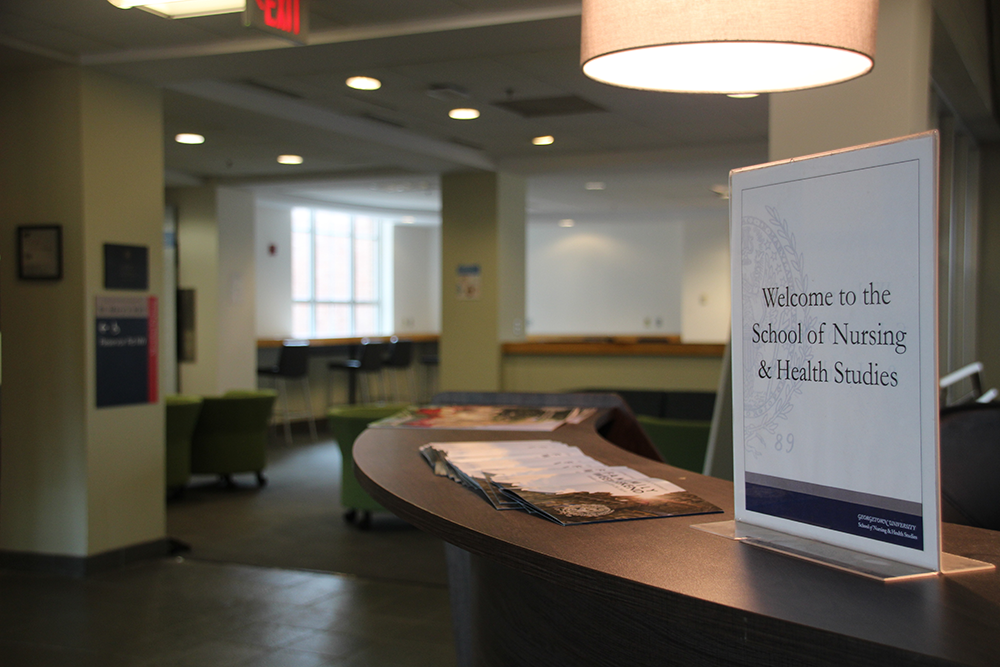
Yet contingencies surrounding the COVID-19 pandemic have left Lei and many of her classmates feeling the need to choose between their health and their education. Some students in the Bachelor of Science in Nursing program in the School of Nursing and Health Studies worry about contracting coronavirus and spreading it to others. They say the NHS does not have contingency plans for if they fall ill and become unable to complete in-person clinical hours.
After Georgetown announced no students would be allowed to return to campus this fall, nursing students were given three options for the semester. They could choose to defer a year, take nonclinical classes part-time or take classes on campus to take part in clinical rotations, according to an email to The Hoya from Margaret Nolan, interim director of the BSN program, and Edilma Yearwood, chair of the department of professional nursing practice. BSN students need 120 clinical hours to graduate.
Given these three options, however, students felt pressure to return to campus to complete their degree requirements on time, according to a student in the BSN program who preferred to remain anonymous and will be referred to as Alex to protect their identity.
“The only option we were given was to return to campus and work in the hospital or take a full year off,” Alex wrote in an email to The Hoya. “If there were other options besides taking a year off, I would have taken them. I have severe asthma and was terrified to return to campus and work in the hospital.”
Even if they did choose to return to campus, some students are uncertain if they will be able to graduate if they catch coronavirus and need to take time off to recover. Nursing students say the administration has not provided a clear contingency plan if the problem arises.
While junior nursing students have been participating in entirely in-person clinical rotations, many senior nursing students have been completing the majority of clinical rotations online despite returning to campus. Seniors only have in-person clinical rotations once a week, according to a fourth-year BSN student, who preferred to remain anonymous and will be referred to as Casey to protect their identity.
“I wasn’t very happy to be forced to come back,” Casey said in a Zoom interview with The Hoya. “Especially because I’m only coming back so that I can leave my apartment once every other week.”
Nolan and Yearwood wrote in their email to The Hoya the administration acknowledges student concerns and will work to address any confusion about fall policy.
Additionally, nursing students are frustrated after being asked to sign a clinical release form Sept. 8 to participate in hospital rotations that implied students returned to campus freely. Although the form said students were given alternatives to returning to campus, effectively, students’ only alternative was delaying their graduation, according to a student in the BSN program who preferred to remain anonymous and will be referred to as Jordan to protect their identity.
“They say that we came back of our own volition even though we had other options. The truth is our other options were to do another year of school,” Jordan said in a Zoom interview with The Hoya. “While that is technically another option, it is not viable for a lot of students financially, emotionally, physically; it was an option but I don’t think it was a viable one.”
Until early October, students on campus believed they would not be able to quarantine before being required to head home on Nov. 20, the same day that clinical rotations end. However, nursing students received an email on Oct. 6 from Associate Vice President for Student Affairs and Dean of Students Jeanne Lord notifying them that housing would be extended to Dec. 18.
“The NHS Dean’s Office sponsored your fall campus housing because of required academic curricular elements in your degree program necessitating on-campus work,” Lord wrote in an email obtained by The Hoya. “The Dean’s Office has notified us that your coursework necessitating on-campus presence will be completed by Friday, December 18, the last day of fall final examinations. As a result, you may remain on campus until December 18 to complete your coursework.”
After Thanksgiving break, students will participate in clinical meetings online until winter break, lessening the risk of contracting coronavirus from the hospital setting.
Regardless, Georgetown students are not permitted to care for COVID-19 patients or patients who are being evaluated for coronavirus, so students only need to quarantine if it is required by the state they are returning to, according to Nolan and Yearwood.
“Given their strict adherence to PPE requirements while caring for patients, nursing students do not require quarantine before going home unless it’s a requirement of the state they are visiting or leaving,” Noland and Yearwood wrote in an email to The Hoya. “However, they must self-monitor for symptoms of COVID-19 and testing is recommended for even the most mild symptoms.”
Before Georgetown extended on-campus housing for BSN students, students were advocating for an extension that allowed them enough time to quarantine before leaving the Hilltop, according to the GUSA Student Health Policy Team.
“The GUSA Student Health Policy Team has made advocating for BSN Majors a top priority,” the team wrote in a collective email to The Hoya. “Our policy team has partnered with BSN Majors who have raised concerns and our conversations with the administration are still ongoing. We have made significant progress to establish an open dialogue with the NHS BSN Director and formulate a questionnaire to compile individual perspectives.”
Students are also raising concerns about proper personal protective equipment. In an Aug. 5 meeting for the Class of 2022 BSN cohort, administrators initially promised each nursing student one N95 mask upon their return to campus. Lei said the administration waited until Sept. 28 to begin distributing masks.
In a Sept. 28 email to nursing students, administrators explained N95 masks would be provided for student comfort. The email came after seven BSN students were informed several staff members and patients on their clinical floor had tested positive for COVID-19 on Sept. 26. These students will be relocated to a different floor and were advised to “maintain strict adherence to PPE” and monitor their symptoms, according to the email from their clinical supervisor.
Lei said the administration worried that distributing N95 masks to students who were not coming into contact with COVID-19 patients directly would cause unnecessary concern.
Before the N95 masks were distributed, BSN students were given a bag of standard surgical masks, a face shield and goggles, according to Colby Schmidt (NHS ’22). (Full disclosure: Schmidt currently serves as social media editor for The Hoya.) Students are now expected to use the same N95 mask for the entirety of the semester, wearing a standard surgical mask overtop to help preserve the N95 underneath.
Ultimately, communication between administrators and students has left BSN students with few options for the fall semester, according to Alyssa Rose (NHS ’22).
“I feel like it needs to be communicated with our clinical instructors what exactly is required of us in our clinicals,” Rose said in a Zoom interview with The Hoya. “We’re not getting paid, nor do we have an option. It was either you come back and you do your clinicals, or you are a year behind and you do not graduate on time.”








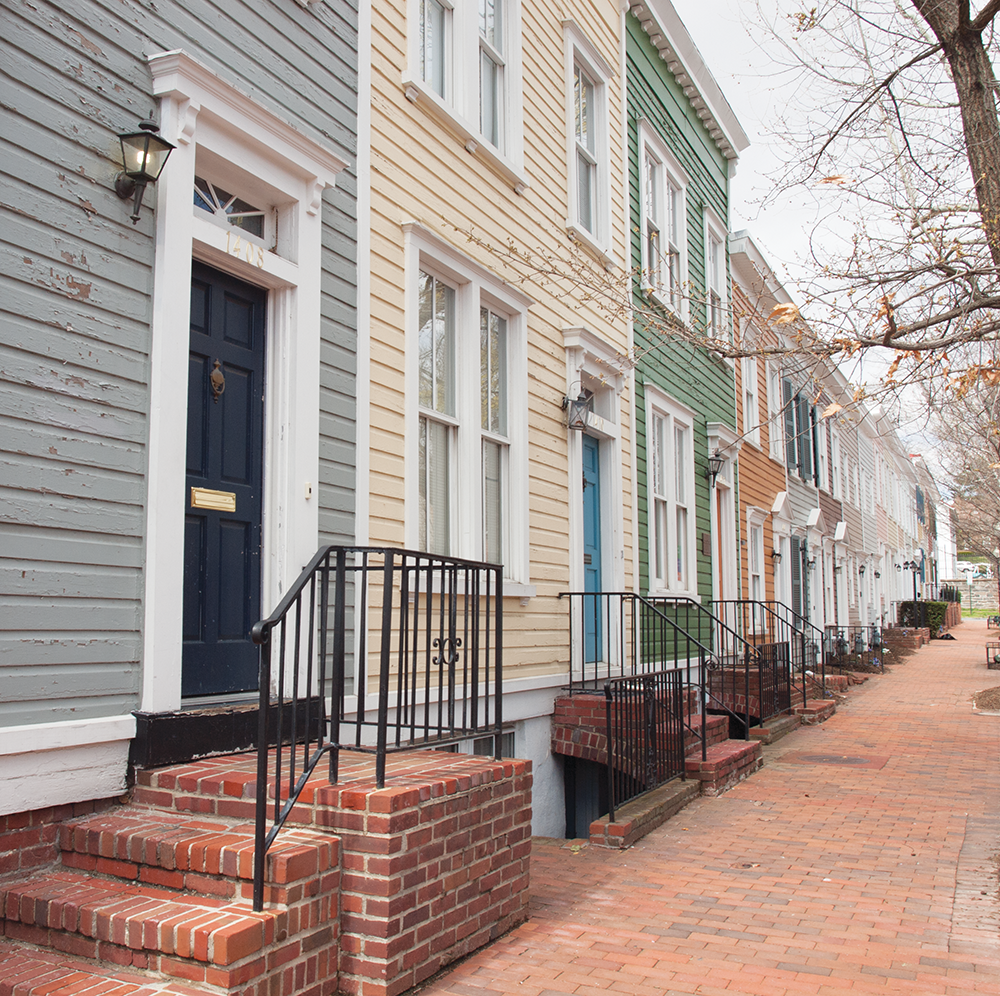
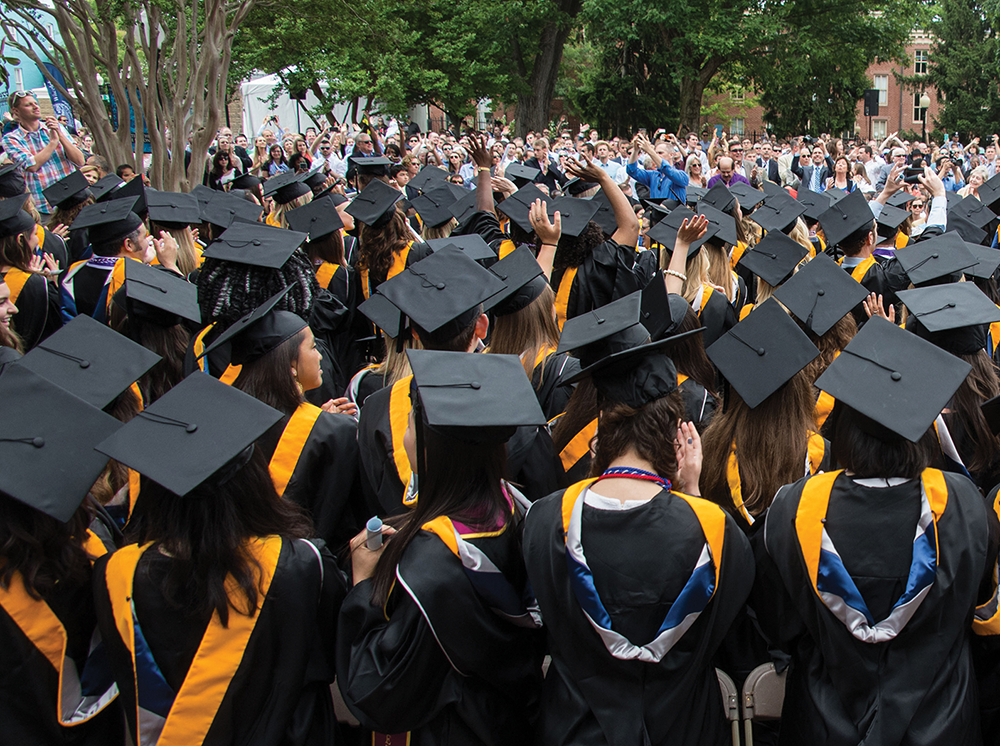
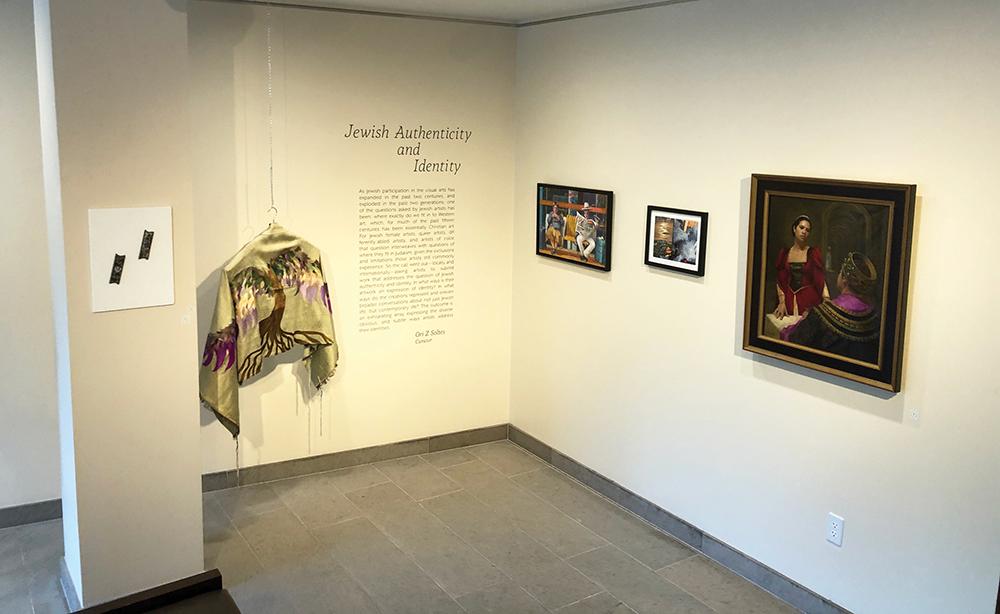
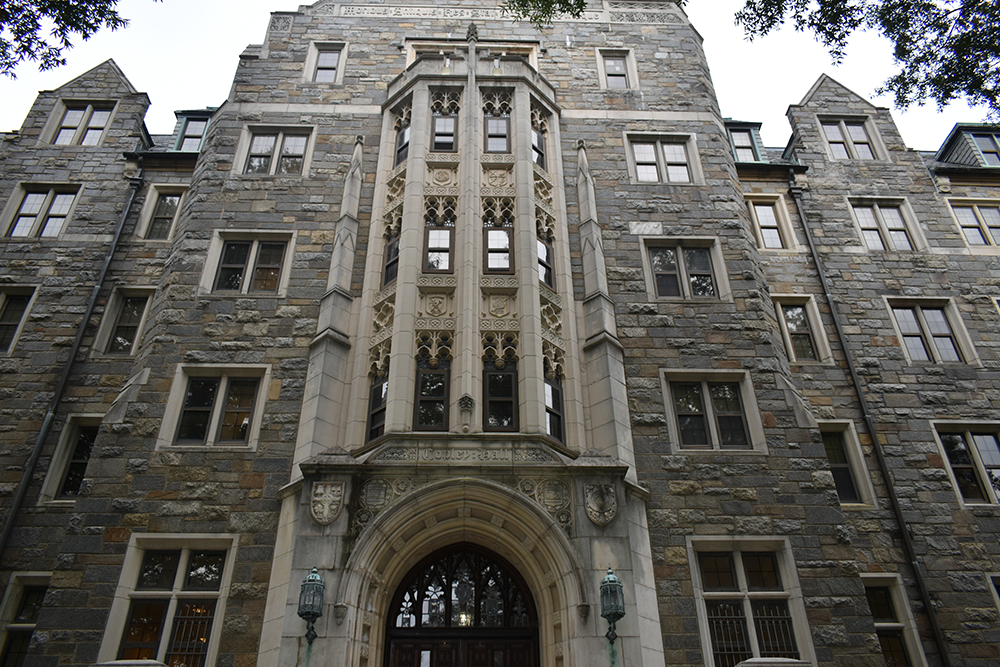
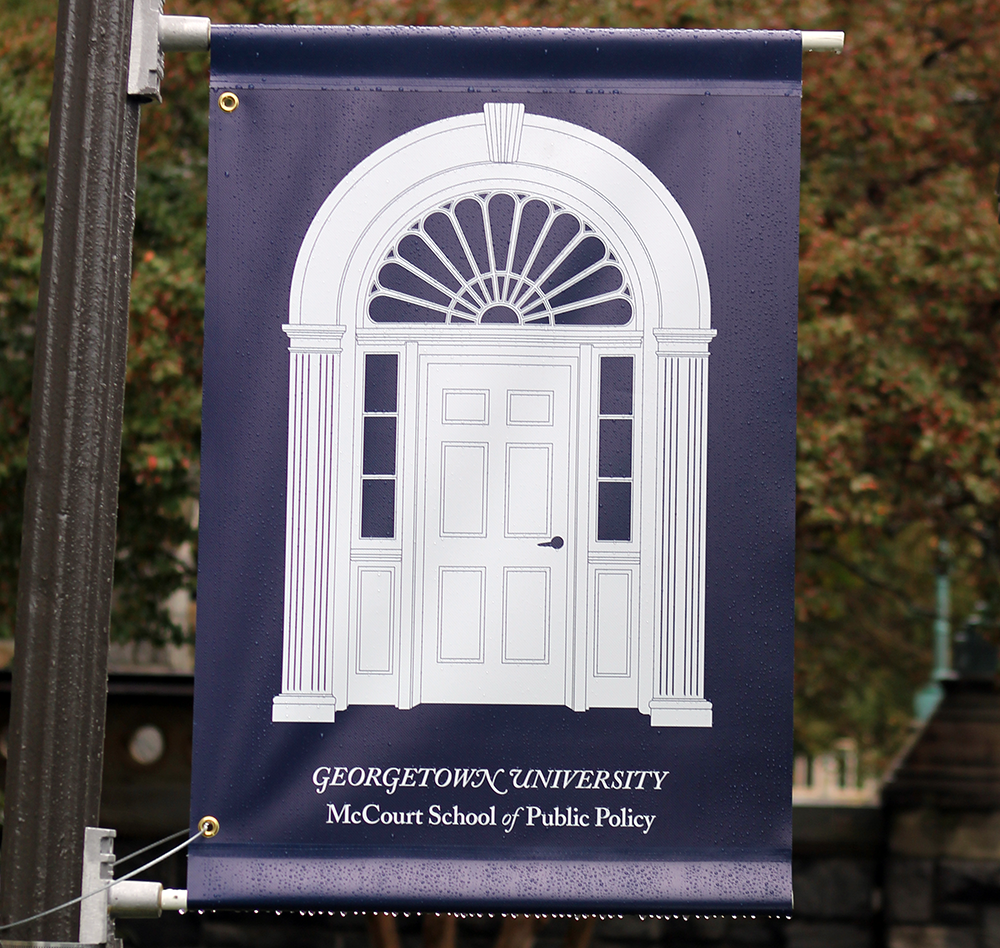








Shannan E Weis • Oct 19, 2021 at 9:14 pm
Thank you for shower your knowledge upon us. It surely help us to save ourself from the sever illness.
SaishaEduversity • Sep 15, 2021 at 5:24 am
Greatfull Article Thanks For Sharing This..!!